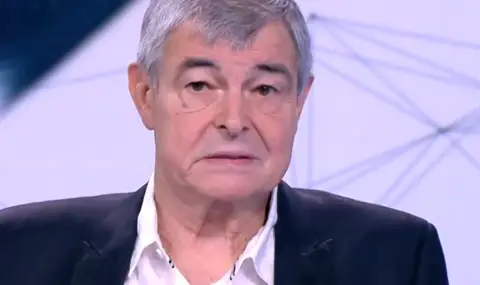The crisis in Bulgaria came at the beginning of Boyko Borisov's rule. In 2009-2010, the country experienced a decline in gross domestic product by about 6.5%, when Finance Minister Simeon Dyankov came in, who made an absolutely wrong budget. This was said in the program "Bulgaria, Europe and the World in Focus" on Radio "Focus" Stefan Sofianski – former acting prime minister and 10 years mayor of Sofia.
"Since 2009, there has been almost no year in which we have had a good budget or economic growth. We have entered a spiral of borrowing and indebtedness. Despite Borisov's oaths that he is not a populist and will not leave the country in debt, Bulgaria has reached a fairly high external debt. And today's situation implies taking on new loans, which is no longer good", he shared.
In his words, the country has not used the funds from the European Union correctly. "The logic that should have been for these funds was that they should give gross domestic product, i.e. we should put them into reproduction, in the economic sphere, so that Bulgaria could produce more and be more competitive. We spent this money. At that time, Mr. Donchev was proud that we were in 23rd place in terms of absorption of funds in Europe, which is ridiculous. When you are the poorest in Europe, you have to be the first in terms of absorption of funds. These funds that we absorbed did not lead to the necessary growth of our economy, which would provide revenues for the budget. As a result, Bulgaria has continued to be the poorest country in Europe since 2009", the former Prime Minister also stated.
And he told how he managed to stabilize the economy through a number of measures such as increasing state reserves and introducing the currency board.
As for Bulgaria's future in the eurozone, Sofianski noted that the adoption of the euro should be considered as part of a long-term economic strategy. "When we have economic growth, the transition to the euro will be much smoother. However, the horizon of this in today's turbulent political situation is not close. But if we have a stable government that relies on a long-term policy, this could happen in 5, 6, 7 years."
Sofianski said that we should not accept the euro as a political goal, but as a purely financial and economic perspective for a strong economy.
